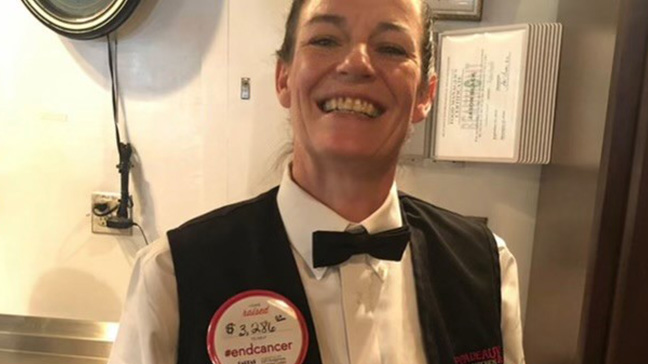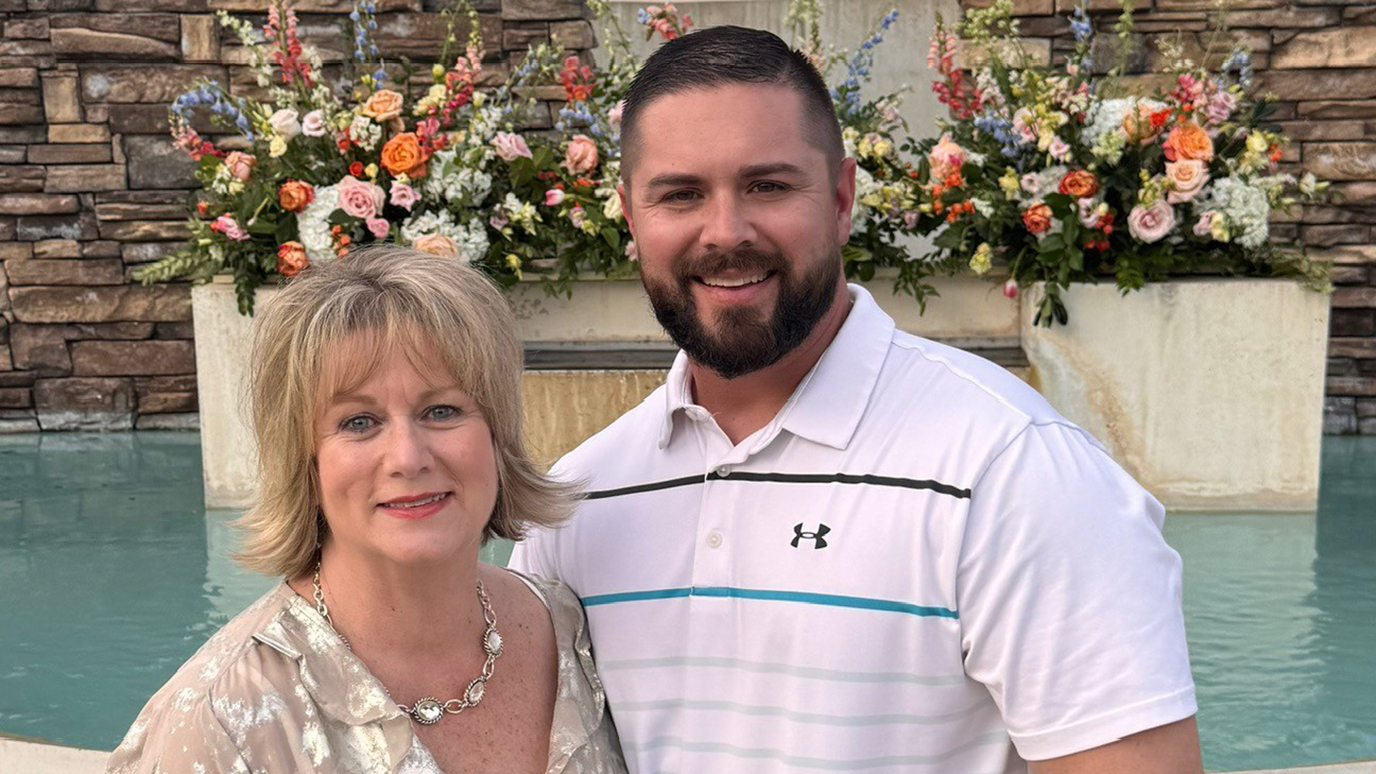- Diseases
- Acoustic Neuroma (14)
- Adrenal Gland Tumor (24)
- Anal Cancer (70)
- Anemia (2)
- Appendix Cancer (16)
- Bile Duct Cancer (26)
- Bladder Cancer (72)
- Brain Metastases (28)
- Brain Tumor (232)
- Breast Cancer (722)
- Breast Implant-Associated Anaplastic Large Cell Lymphoma (2)
- Cancer of Unknown Primary (4)
- Carcinoid Tumor (8)
- Cervical Cancer (164)
- Colon Cancer (166)
- Colorectal Cancer (116)
- Endocrine Tumor (4)
- Esophageal Cancer (44)
- Eye Cancer (36)
- Fallopian Tube Cancer (8)
- Germ Cell Tumor (4)
- Gestational Trophoblastic Disease (2)
- Head and Neck Cancer (14)
- Kidney Cancer (128)
- Leukemia (342)
- Liver Cancer (50)
- Lung Cancer (286)
- Lymphoma (278)
- Mesothelioma (14)
- Metastasis (30)
- Multiple Myeloma (100)
- Myelodysplastic Syndrome (60)
- Myeloproliferative Neoplasm (6)
- Neuroendocrine Tumors (16)
- Oral Cancer (102)
- Ovarian Cancer (176)
- Pancreatic Cancer (160)
- Parathyroid Disease (2)
- Penile Cancer (14)
- Pituitary Tumor (6)
- Prostate Cancer (148)
- Rectal Cancer (58)
- Renal Medullary Carcinoma (6)
- Salivary Gland Cancer (14)
- Sarcoma (238)
- Skin Cancer (298)
- Skull Base Tumors (56)
- Spinal Tumor (12)
- Stomach Cancer (66)
- Testicular Cancer (28)
- Throat Cancer (92)
- Thymoma (6)
- Thyroid Cancer (98)
- Tonsil Cancer (30)
- Uterine Cancer (86)
- Vaginal Cancer (18)
- Vulvar Cancer (22)
- Cancer Topic
- Adolescent and Young Adult Cancer Issues (20)
- Advance Care Planning (12)
- Biostatistics (2)
- Blood Donation (18)
- Bone Health (8)
- COVID-19 (360)
- Cancer Recurrence (120)
- Childhood Cancer Issues (120)
- Clinical Trials (628)
- Complementary Integrative Medicine (22)
- Cytogenetics (2)
- DNA Methylation (4)
- Diagnosis (236)
- Epigenetics (6)
- Fertility (62)
- Follow-up Guidelines (2)
- Health Disparities (14)
- Hereditary Cancer Syndromes (128)
- Immunology (18)
- Li-Fraumeni Syndrome (8)
- Mental Health (118)
- Molecular Diagnostics (8)
- Pain Management (62)
- Palliative Care (8)
- Pathology (10)
- Physical Therapy (18)
- Pregnancy (18)
- Prevention (928)
- Research (388)
- Second Opinion (76)
- Sexuality (16)
- Side Effects (614)
- Sleep Disorders (10)
- Stem Cell Transplantation Cellular Therapy (216)
- Support (402)
- Survivorship (324)
- Symptoms (182)
- Treatment (1778)
8 dos and don’ts for communication during cancer treatment
4 minute read | Published January 03, 2025
Medically Reviewed | Last reviewed by Niyati Purohit on January 03, 2025
A cancer diagnosis and cancer treatment provide many opportunities for family members, friends and acquaintances to rally around you.
While this support is crucial for many patients and their families, communicating about treatment while also living through it can be a lot. It can even lead to burnout, says Social Work Counselor Niyati Purohit.
Ahead, Purohit shares dos and don'ts for communicating during cancer, whether you’re a patient, caregiver or loved one.
Tips for patients and caregivers
Do: Consider broader ways to share updates
Despite your best intentions, it can be hard to keep up with an influx of messages while managing a packed treatment schedule and side effects.
Instead, Purohit suggests using a platform that allows you to share updates with many people at once. This could be a social media page, group text chain or blog. There are even websites designed specifically for sharing health updates with loved ones.
Virtual support allows you to keep your biggest cheerleaders close at hand, even if they are far away. It’s especially helpful for those who travel to Houston for treatment, Purohit says.
“Community and keeping that strong support network is really important,” she says. “Keeping in touch with friends and family is a way to stay connected and feel less lonely. It can also be a distraction from focusing on your treatment all the time.”
Don’t: Feel obligated to share anything you aren’t comfortable with
You aren’t obligated to share anything about your cancer treatment. It’s up to you to decide how much you want to share, when to share it and with whom you share it.
“Some people don't feel comfortable sharing; it's a very private thing for them,” Purohit says.
If you do choose to share, it’s OK to set boundaries around the types of information you feel comfortable discussing and whom you communicate with.
For some, this might look like limiting treatment-related information to a small group of loved ones. Others “really find strength in numbers” and are open to sharing their experience with many people, Purohit says.
“It's something that’s subjective to the person and if they find support in other people,” she says.
Don’t: Expect anything posted online to be private
Purohit offers a word of caution about online privacy when sharing health information. Online posts can be screenshotted and sent to other people, even those who don’t have access to the original communication channel, she says.
“I always tell people ‘Be careful,’ because it can potentially be shared with strangers and people that you may not want to share with,” she says.
Do: Consider a communications point person
Another way to manage updates during treatment? Teamwork. Consider asking a loved one to be in charge of updating your network.
“I always try to talk to patients about having a point person that provides updates to everybody,” Purohit says, adding this could be a spouse or adult child.
Some patients even choose not to be a member of communication channels about their treatment, Purohit says. This allows friends and family to share support and get treatment updates while also giving the patient a bit of space.
“Other people could react, vent or send prayers and things like that, but then the patient wouldn't get too overwhelmed with all of the responses,” she says.
Don’t: Feel the need to respond to every message immediately
Struggling to stay in touch with friends and family? “I always say ‘honesty is the best policy,’” Purohit says.
Sometimes coming up with the right words can be a challenge. In that case, it can help to have go-to responses. Here are two options Purohit recommends.
- I can’t respond to your message at this time, but I will update you soon.
- I appreciate your concern and well wishes. There are some things I would like to keep private, but I will share information when I'm ready.
Tips for loved ones
Do: Reach out
Hesitant to reach out to a friend or loved one with cancer? Maybe you aren't sure exactly what to say or feel uncomfortable checking in.
When in doubt, Purohit notes, “I always say that it's OK to reach out.”
You can also consider asking a patient who to reach out to for updates while they are in treatment, she adds.
Don’t: Expect an immediate response
Don’t take it personally if you don’t hear back from someone going through treatment, Purohit says.
“Be prepared that they may not have the ability to keep you updated or they may be really tired or stressed out,” she says.
The same goes for caregivers and family members of someone going through treatment.
“Be mindful of the burnout that can happen when someone is giving continuous updates to friends and family, even if they're not the patient themselves,” she says.
Do: Let patients share news on their timeline
It’s natural to be concerned or curious about a loved one, especially if you know they have an upcoming appointment. However, instead of asking about lab results, Purohit advises letting patients share updates on their own timeline.
Instead of asking how an appointment went, perhaps simply send a message saying you are thinking of them.
“Be mindful of some of the news they could be getting,” she says. “It may be something they want to share, or it may be something that they're still digesting and they’ll share when they're ready.”
Request an appointment at MD Anderson online or call 1-877-632-6789.
Related Cancerwise Stories

Community and keeping that strong support network is really important.
Niyati Purohit
Social Work Counselor





